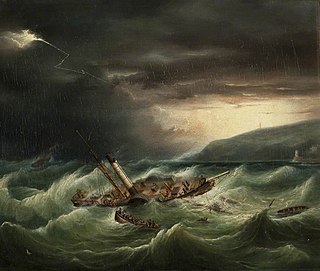Charles Farr may refer to:
- Charles Farr (builder) (c. 1812–1888), Australian timber merchant and builder
- Charles Farr (civil servant) (1959–2019), British civil servant, intelligence officer, and diplomat
Charles Farr may refer to:

John Lambert was an English Parliamentarian general and politician. Widely regarded as one of the most talented soldiers of the period, he fought throughout the Wars of the Three Kingdoms, and was largely responsible for victory in the 1650 to 1651 Scottish campaign.
Charles, Charlie or Chuck Thomas may refer to:
Joseph Brennan may refer to:
Alexander Ross may refer to:
Charles or Charlie Adams may refer to:
Charles Knight may refer to:
Henry French may refer to:

Farr Yacht Design, founded by Bruce Farr in Auckland, New Zealand, is a racing yacht design firm based in Annapolis, Maryland, United States. The firm is led by Patrick Shaughnessy. Its yachts measure from 25 feet (7.6 m) to 125 feet (38 m). Farr develops custom and production yachts, including interiors, sails, and hull design. Farr uses outside research and development with tank testing and wind tunnels. Farr-designed yachts have won and placed well in a broad range of races.
George Arbuthnot may refer to:
Charles, Charlie, or Chuck Harris may refer to:
Farr is a surname, and may refer to:

David Nelson Farr is an American business executive. He was the chairman and CEO of Emerson Electric Company, a Fortune 500 company. Farr has worked at the company since 1981 and retired as CEO on Feb 5, 2021. He is married to Lelia Far, with whom he has two children, and is a resident of Ladue, Missouri.
Charles Marsh may refer to:
Charles Steele may refer to:
Sir Jonathan Stephen Day is a retired British Civil Servant lately serving as the Chairman of the Joint Intelligence Committee and Head of the Joint Intelligence Organisation at the Cabinet Office.
Sir Charles Blandford Farr was a British civil servant, intelligence officer, and diplomat. He was Chairman of the Joint Intelligence Committee and Head of the Joint Intelligence Organisation at the Cabinet Office until his death in February 2019. Before that, from 2007 until 2015 Farr was the Director of the Office for Security and Counter-Terrorism (OSCT) at the United Kingdom's Home Office.
The surname "Lyall" is found early in Scotland and was derived from the Old Scandinavian given name "Liulfr", where "ulfr" means literally "wolf". After the Viking settlement in Scotland name sounds would have changed. For example, "Liulfr" is pronounced 'lee-oolv-ur', but after time probably softened in pronunciation to 'lee-ooler' and then 'loo-il' and finally 'lyall' after the Old Norse "R" was dropped off the end. The Lyall Clan is a Sept of Clan Sinclair a Highland Scottish clan of Norman origin a people descended from Norse Vikings who held lands in the north of Scotland, the Orkney Islands, and the Lothians.
Pendulum Press was a publishing company based in West Haven, Connecticut, that operated from 1970 to 1994, producing the bulk of their material in the 1970s. The company is most well known for their comic book adaptations of literary classics. The Pendulum Now Age Classics series published black-and-white paperback adaptations of more than 70 literary classics, such as Twenty Thousand Leagues Under the Sea, The War of the Worlds, and Moby-Dick. These stories were later widely reprinted by other publishers well into the 2000s. Pendulum also published a line of historical comics, a line of comic book biographies, and a line of comic book adaptations of inspiring stories and morality tales.
Richard Dean may refer to:

The first RMS St Patrick of the St. George Steam Packet Company was a wooden paddle steamer, launched by Mottershead & Hayes of Liverpool on 22 April 1822 for passenger service. The ship first served on the line's Dublin to Liverpool route, with a stopover in Bristol. The ship was sold in 1824 to Portuguese interests and renamed the ship Restaurador Lusitano, which operated on the Lisbon to Oporto route. Civil war broke out in 1828 and the vessel was chartered for service by the Absolutists in 1832. While sailing with troops and supplies, Restaurador Lusitano was severely damaged in a storm while attempting to aid another vessel in trouble. The damage was too much and Restaurador Lusitano sank on 11 September 1832.